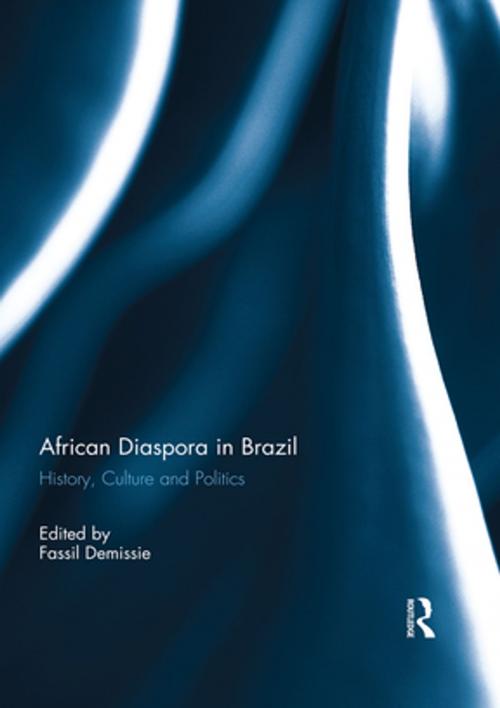African Diaspora in Brazil
History, Culture and Politics
Nonfiction, Social & Cultural Studies, Social Science, Sociology| Author: | ISBN: | 9781134918843 | |
| Publisher: | Taylor and Francis | Publication: | March 16, 2016 |
| Imprint: | Routledge | Language: | English |
| Author: | |
| ISBN: | 9781134918843 |
| Publisher: | Taylor and Francis |
| Publication: | March 16, 2016 |
| Imprint: | Routledge |
| Language: | English |
The term 'Black Atlantic' was coined to describe the social, cultural and political space that emerged out of the experience of slavery, exile, oppression, exploitation and resistance. This volume seeks to recast a new map of the 'Black Atlantic' beyond the Anglophone Atlantic zone by focusing on Brazil as a social and cultural space born out of the Atlantic slave trade.
The contributors draw from the recently reinvigorated scholarly debates which have shifted inquiry from the explicit study of cultural 'survival' and 'acculturation' towards an emphasis on placing Africans and their descendants at the center of their own histories. Going beyond the notion of cultural 'survival' or 'creolization', the contributors explore different sites of power and resistance, gendered cartographies, memory, and the various social and cultural networks and institutions that Africans and their descendants created and developed in Brazil. This book illuminates the linkages, networks, disjunctions, sense of collective consciousness, memory and cultural imagination among the African-descended populations in Brazil.
This book was originally published as a special issue of *African and Black Diaspora: An International Journal. *
The term 'Black Atlantic' was coined to describe the social, cultural and political space that emerged out of the experience of slavery, exile, oppression, exploitation and resistance. This volume seeks to recast a new map of the 'Black Atlantic' beyond the Anglophone Atlantic zone by focusing on Brazil as a social and cultural space born out of the Atlantic slave trade.
The contributors draw from the recently reinvigorated scholarly debates which have shifted inquiry from the explicit study of cultural 'survival' and 'acculturation' towards an emphasis on placing Africans and their descendants at the center of their own histories. Going beyond the notion of cultural 'survival' or 'creolization', the contributors explore different sites of power and resistance, gendered cartographies, memory, and the various social and cultural networks and institutions that Africans and their descendants created and developed in Brazil. This book illuminates the linkages, networks, disjunctions, sense of collective consciousness, memory and cultural imagination among the African-descended populations in Brazil.
This book was originally published as a special issue of *African and Black Diaspora: An International Journal. *















